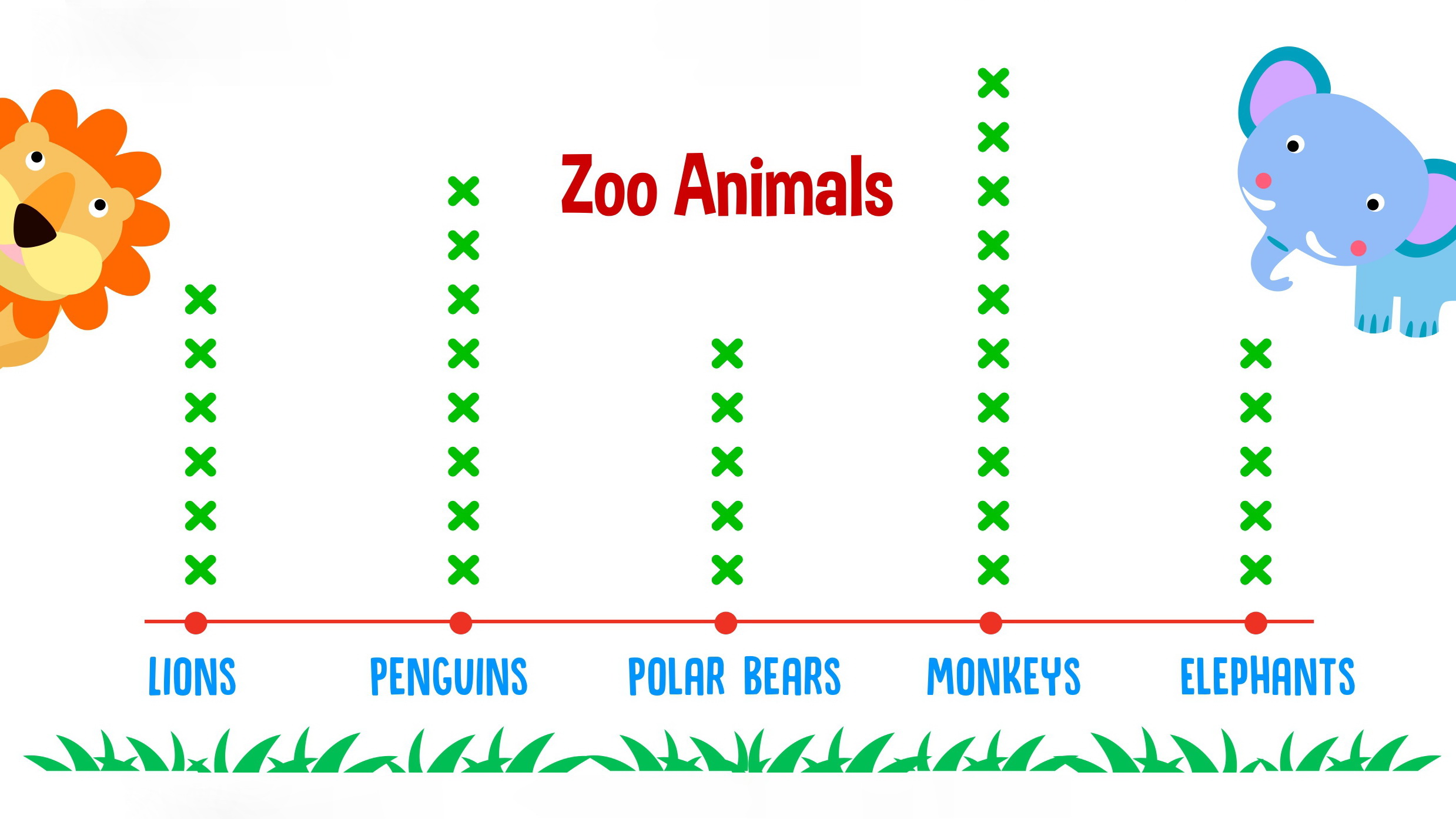Phonics Skills Normal Worksheets for Ages 6-7 - Page 3
56 filtered results
-
From - To
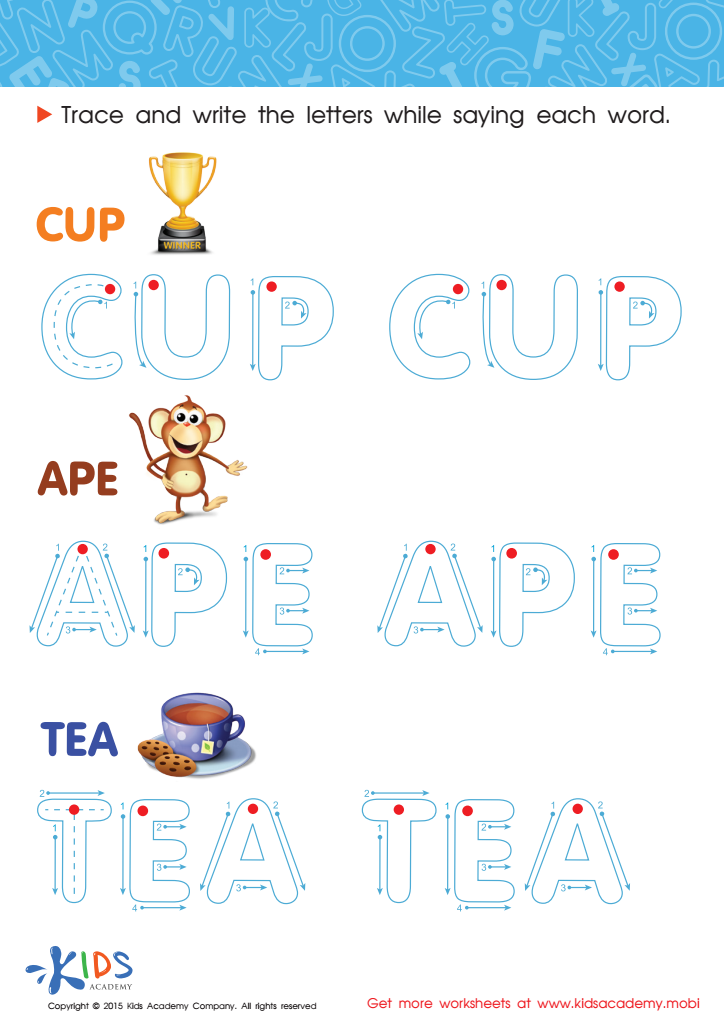

A Cup, an Ape and Tea Spelling Worksheet
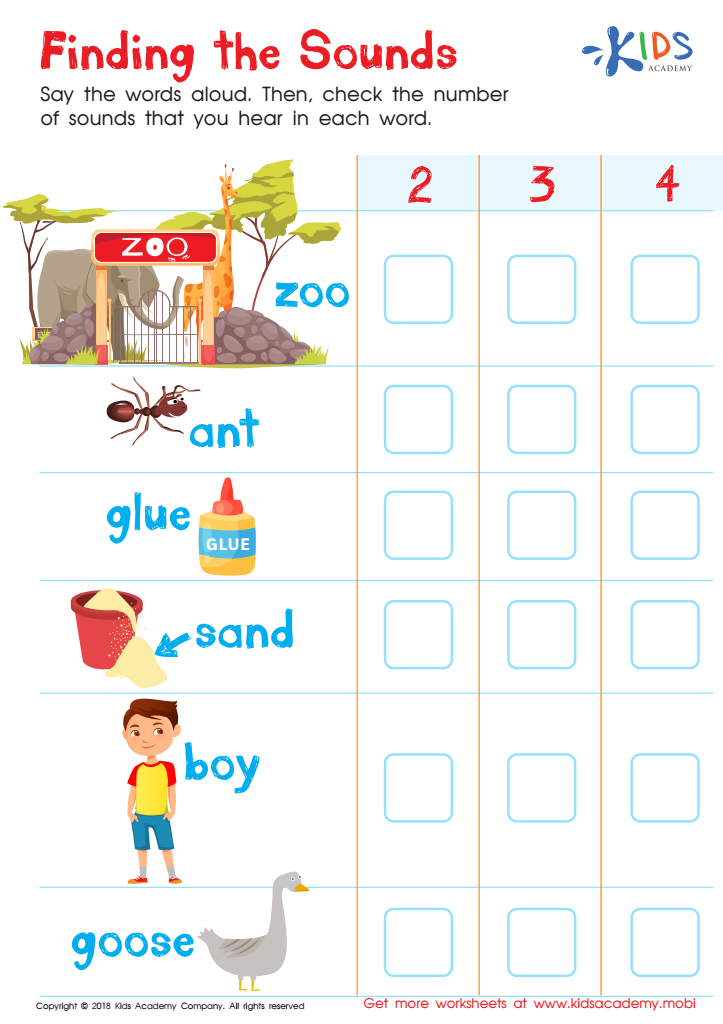

Finding the Sounds Worksheet
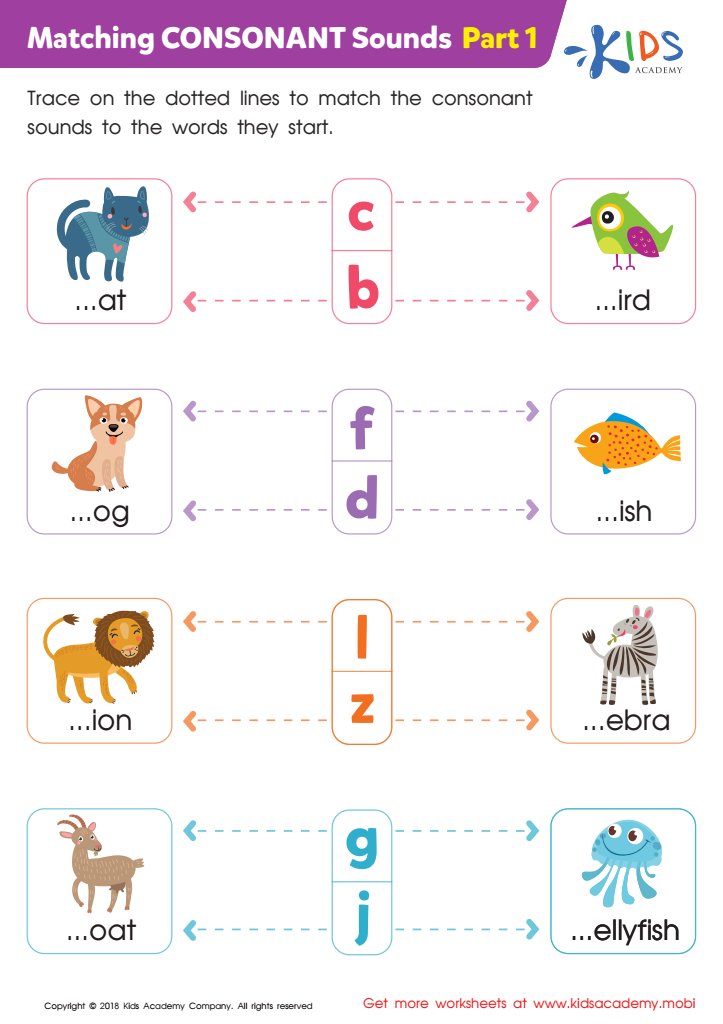

Matching Consonant Sounds: Part 1 Worksheet
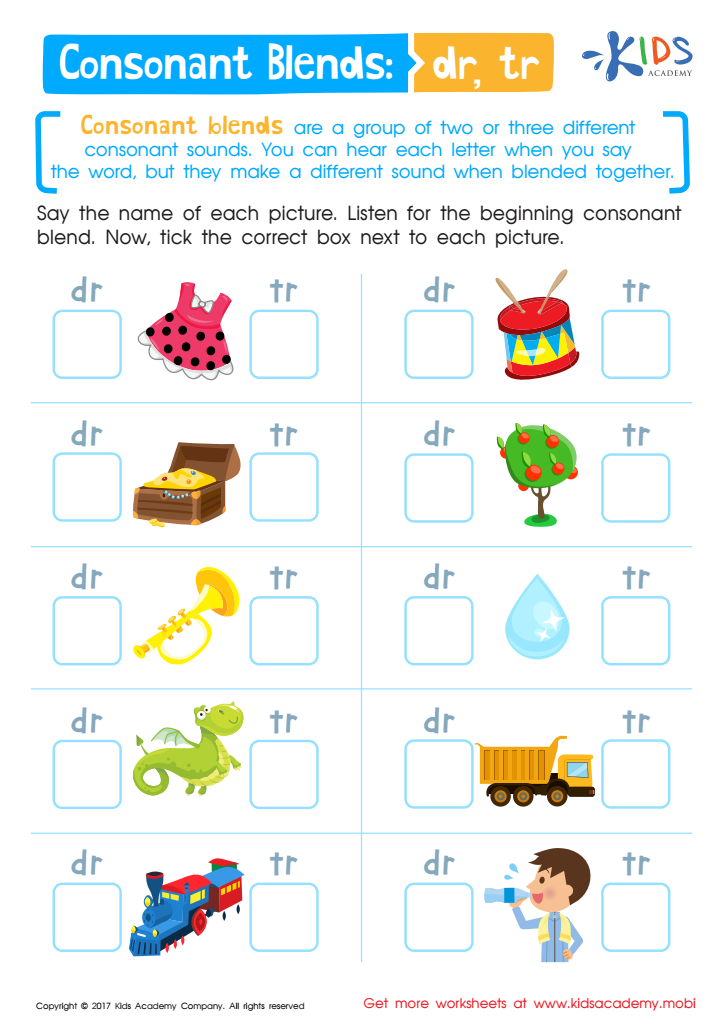

Consonant Blends: "Dr" and "Tr" Printable


Long and Short E Worksheet
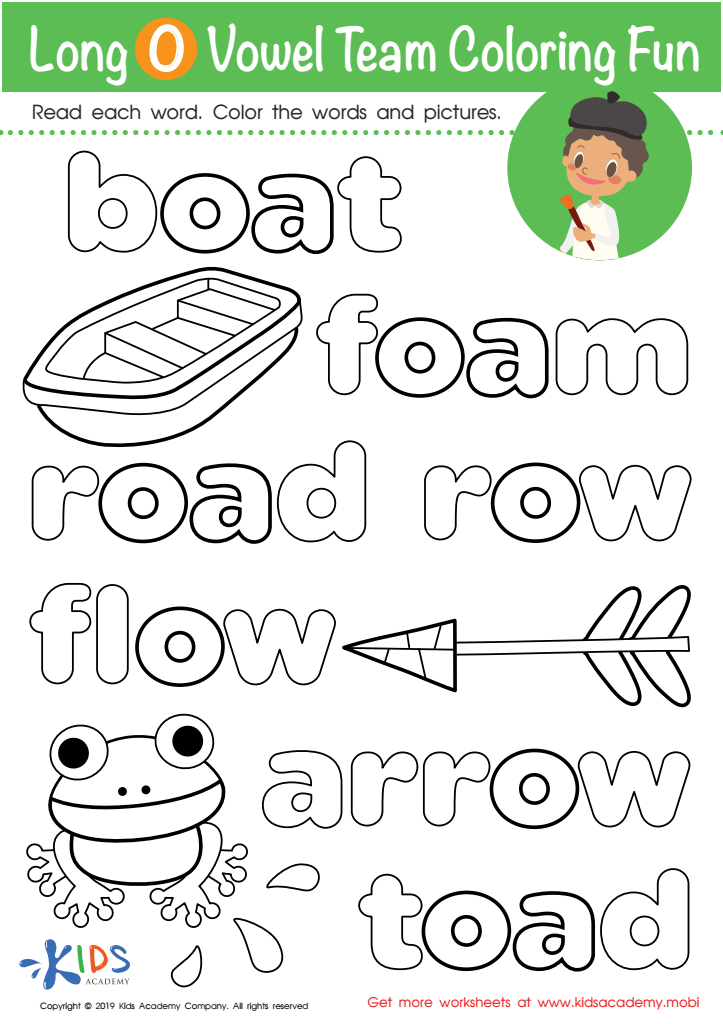

Long O Vowel Team Coloring Worksheet
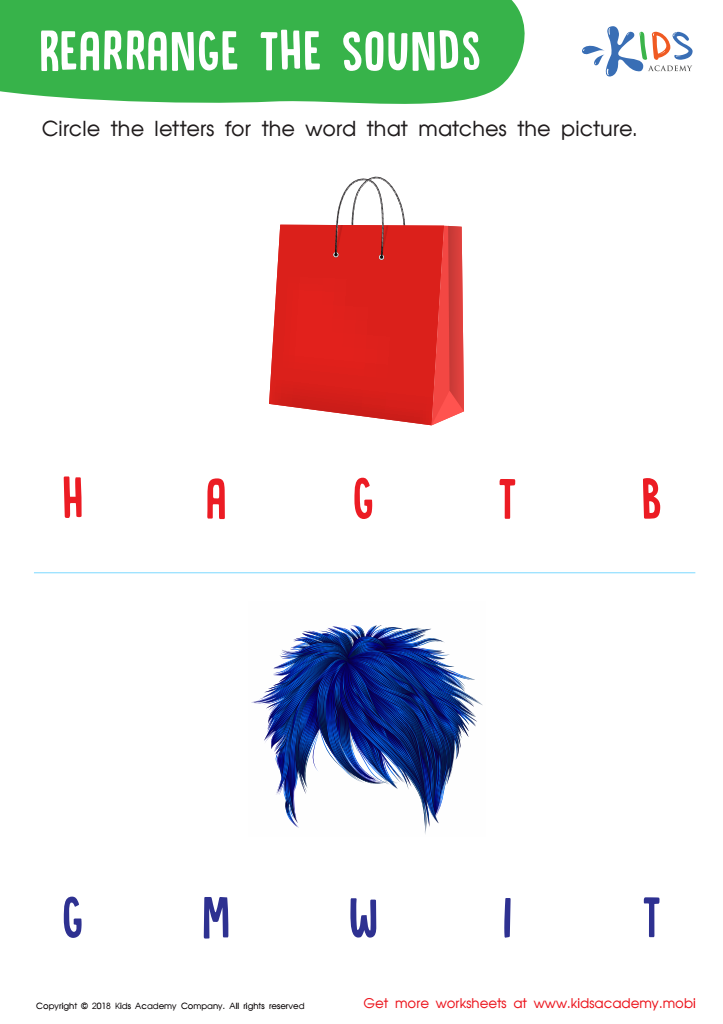

Rearrange the Sounds Worksheet
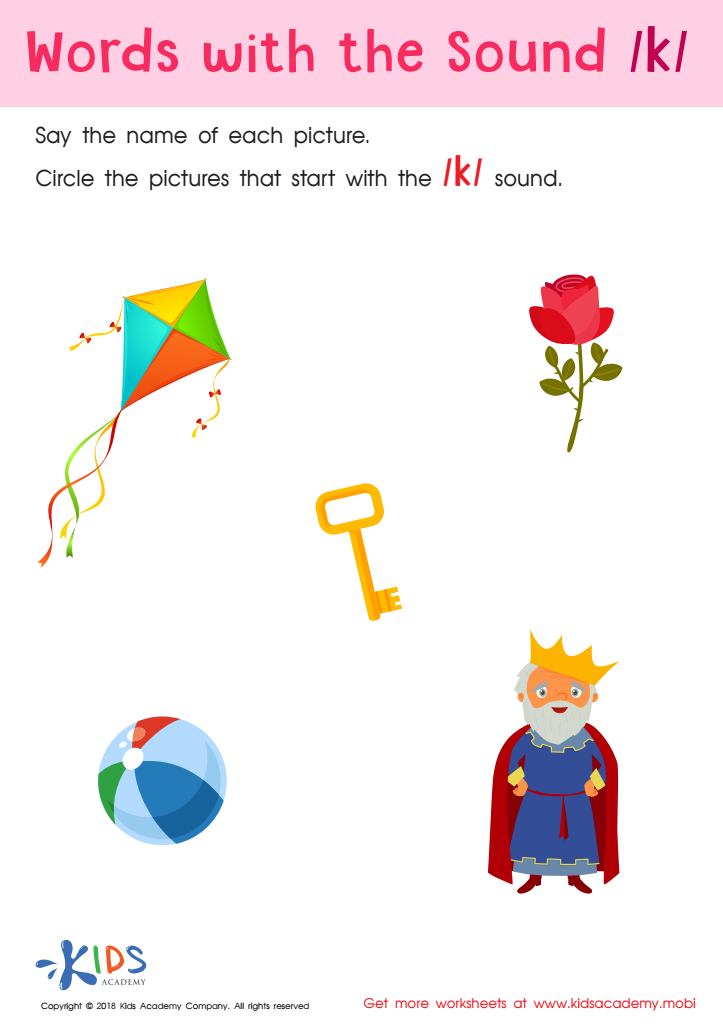

Words with sound k Reading Worksheet
Phonics skills are foundational to a child's reading ability and overall literacy development, making them crucial for ages 6-7. At this age, children are generally beginning their formal education and are in a pivotal stage of learning how to read. Phonics teaches the relationship between letters and sounds, allowing children to decode new words, build vocabulary, and improve reading fluency. When children understand phonics, they can recognize familiar sounds and patterns in words, which boosts their confidence and motivation to read independently.
Parents and teachers should care about these skills because strong phonics abilities are closely linked to success in later reading comprehension and academic achievement. Without a solid foundation in phonics, children may struggle with reading more complex texts and could face ongoing academic challenges. Early intervention can prevent future learning difficulties and foster a lifelong love of reading. Moreover, effective phonics instruction benefits children's spelling and writing skills, contributing to their overall communication abilities.
In summary, prioritizing phonics skills for children aged 6-7 helps ensure they develop essential reading skills, laying the groundwork for academic success and effective communication throughout their lives. Engaging phonics activities can make learning enjoyable and support children in becoming proficient, confident readers.
 Assign to My Students
Assign to My Students








